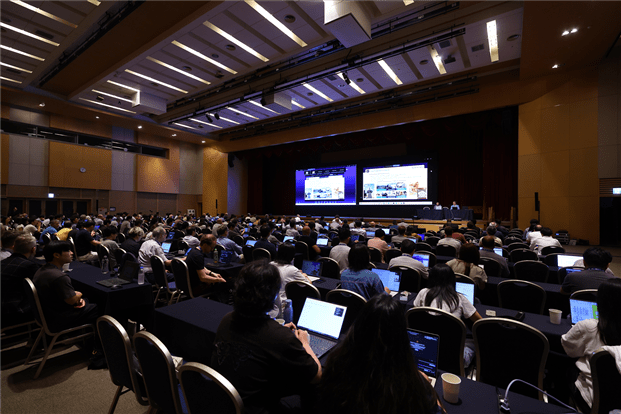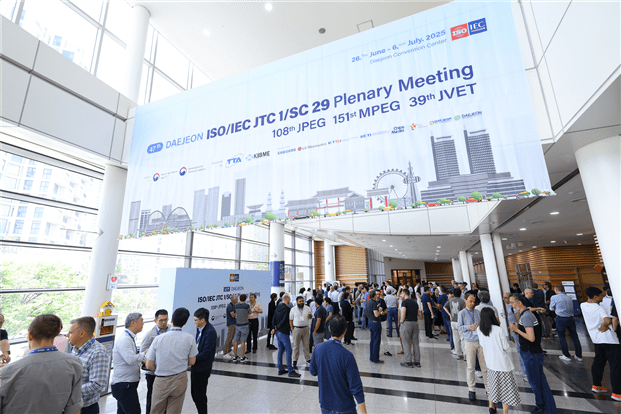The National Radio Research Agency of the Ministry of Science and ICT announced on the 7th that it led discussions on international standardization in the field of AI-based video compression technology. The agency submitted a total of 130 technical papers at the 47th International Standardization Meeting for Multimedia Coding (ISO/IEC JTC 1/SC 29), which was held at the Daejeon Convention Center from June 26 to July 6.
The meeting was hosted by the National Radio Research Agency and organized by the Korea Information and Communications Technology Association (TTA). Major global ICT companies such as Samsung Electronics, LG Electronics, Hyundai Motor Company, Apple, Huawei, Nokia, and Qualcomm participated. About 600 experts from over 30 countries gathered to discuss securing dominance in next-generation video technologies.

During the meeting, evaluations suggested that AI technology could enhance video quality more than traditional methods. The MPEG screen quality assessment advisory group (AG 5) shared preliminary evaluation results that AI-based technology could achieve high performance.
Based on this, participants agreed to develop next-generation video compression technology aimed for commercialization by 2030. Standard development items include AI-based video compression technology, 3D spatial data compression, video analysis optimization compression, and implementation technology for realistic virtual worlds known as Gaussian Splatting. Gaussian Splatting is a rendering technology that places millions of particles in 3D space to create a virtual environment similar to real life.

Traditional codec technology compresses videos according to fixed rules. In contrast, AI-based codecs analyze video content to preserve essential information while removing unnecessary data to increase efficiency. This technology has a structure that compresses and restores data to transmit and store audio and video data efficiently.
When this technology is commercialized in 2030, general users will be able to enjoy 8K ultra-high-definition real-time streaming and immersive virtual convergence world (metaverse) services with less data. In the industrial sector, it can be used for various services such as autonomous driving, smart cities, and remote healthcare.
Jung Changrim, director of the National Radio Research Agency, stated, “AI-based codec technology will lead to a major transformation in media technology,” and “we will strive to ensure that our technology is applied to products and services through the creation of an effective ecosystem.”